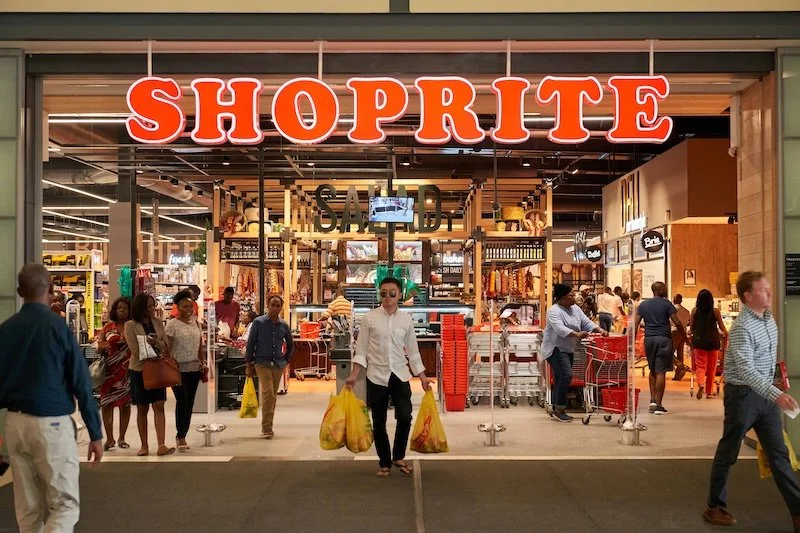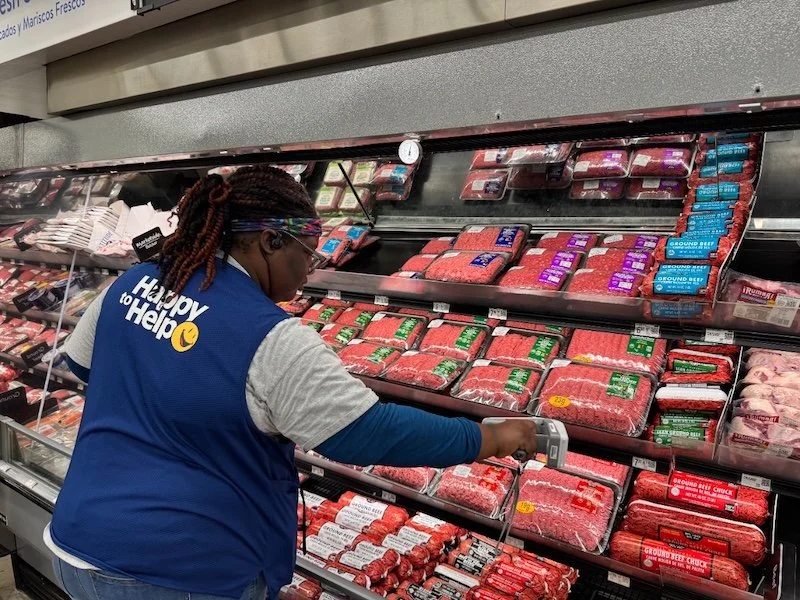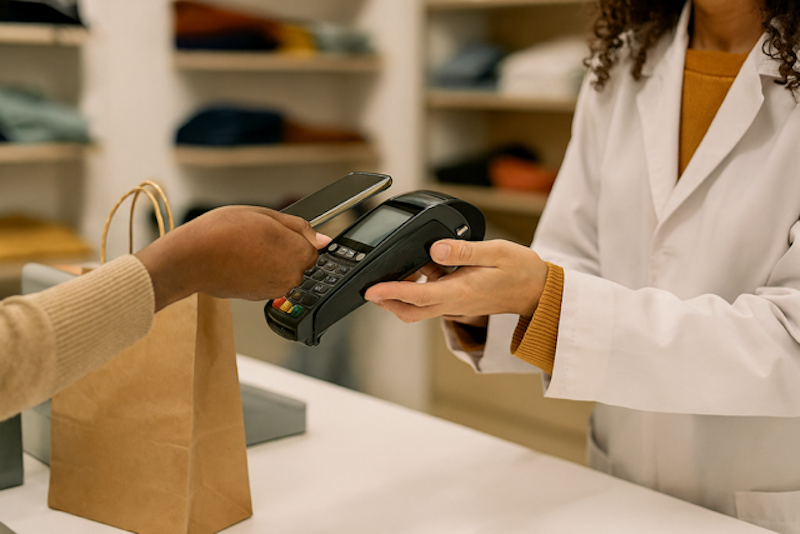Blockchain in Egypt: which sectors are already using this technology?
As the dictionary will tell you, the “blockchain” is a decentralised distributed database that stores transaction records as a sequence of blocks with hashes of the previous block, timestamps, and transaction data.
Sounds complicated. But don’t be intimidated by the complexity of the blockchain or write it off as a boring area for IT geeks and mathematicians. Blockchain technology is likely to improve the lives of ordinary people in Egypt very soon.
Blockchain - Is It Something About Bitcoin and Cryptocurrencies? Not Only
Many have heard the word “blockchain” in the context of the cryptocurrency world. And it’s true - this technology was first seriously applied in 2008 when the revolutionary Bitcoin technology was proposed. What’s good about cryptocurrencies?
They can be used to quickly pay for any service in the world, stored securely without a single intermediary; they continue to grow rapidly in price, are easily converted into the currency of any country, and allow you to remain completely anonymous.
It is known that to generate cryptocurrency, you need to mine - use electricity and computing power. You can also buy it on the stock exchange - at a higher rate and with a commission. Fortunately, today, Egypt has the opportunity to earn any cryptocurrency absolutely easily and legally - thanks to the MelBet EG betting site.
There, you can bet on matches with the best odds and earn money on football, squash, boxing, tennis, and dozens of other sports - and collect your winnings not only in EGP but also in any cryptocurrency. But, of course, the use of blockchain is not limited to just crypto tokens.
Why Do We Need Blockchain at All?
Without many buzzwords, blockchain is needed to ensure authenticity. What verification methods have been used before? For example, wax seals on envelopes. Or government forms - with watermarks and a complex seal. You can also use trusted intermediaries - for example, a bank - if we are talking about finances. After all, it is unlikely that a bank will betray its reputation for the sake of stealing your transfer of 1000 Egyptian pounds.
And yet, all this is vulnerable. Seals or signatures can be forged (besides, you can’t transfer them to the Internet). Government forms - too, and the state can fall into a crisis or simply cancel old obligations. And even with independent banks, for example, there may be problems - after all, they are controlled by specific people. Blockchain solves all these problems. It is an open register, the records that are available to everyone (for example, you can find out the balance of any cryptocurrency account) - but which cannot be falsified in any way.
How Does Blockchain Work? Principles of the Most Secure Verification Method
Roughly speaking, the blockchain protects against counterfeiting in two ways at once: a large number of witnesses and an impartial mathematical algorithm. The blockchain itself is a database of records with information that is simultaneously owned by all computers in the network. All computers constantly communicate with each other and collectively check every change in the blockchain.
Let's say you have 0.01 BTC to transfer to someone else. Then, you publicly declare this to all computers in the network. Now you need to confirm this operation somehow - control that you have these funds. This requires an independent, honest computer witness. Each time, it is chosen randomly, or rather, it wins a competition for the right to become a witness.
The essence of this competition is to be the first to solve a complex mathematical problem (doing such exercises is called “mining”). All other network participants will check the answer. This can be done by anyone who has a copy of the blockchain database (checking the answer is easy, but calculating it yourself is very difficult). Only after this will the “universal” blockchain be updated - and information about your transaction will appear.
Why Can’t Blockchain Be Faked?
Without many buzzwords, blockchain is needed to ensure authenticity. What verification methods have been used before? For example, wax seals on envelopes. Or government forms - with watermarks and a complex seal. You can also use trusted intermediaries - for example, a bank- if we are talking about finances. After all, it is unlikely that a bank will betray its reputation for the sake of stealing your transfer of 1000 Egyptian pounds.
And yet, all this is vulnerable. Seals or signatures can be forged (besides, you can’t transfer them to the Internet). Government forms - too, and the state can fall into a crisis or simply cancel old obligations. And even with independent banks, for example, there may be problems - after all, they are controlled by specific people. Blockchain solves all these problems. It is an open register, the records that are available to everyone (for example, you can find out the balance of any cryptocurrency account) - but which cannot be falsified in any way.
How Does Blockchain Work? Principles of the Most Secure Verification Method
Blockchain application services are not limited to cryptocurrencies and financial transactions. Remember the example of seals and government forms or intermediary organisations. Wherever they are needed, verification is needed, and therefore, blockchain:
● Confirmation of ownership - for real estate or for an art piece you bought, for example (even digital, as well as for your personal copyrights;
● Gambling - in games and entertainment that are held not for the sake of virtual items and achievements but with real cash prizes, fairness control is especially important; for example, on MelBet, all top online games have the function of independent verification of the fairness of mechanics;
● Issuance of rights and licensing - thanks to the blockchain, it will no longer be possible to buy a fake driver's license or a diploma of higher education;
● Security systems - independent registries can be used in security systems and wherever it is necessary to protect against counterfeiting of information, for example, in IoT devices;
Blockchain systems, in fact, technically prohibit lies and forgeries - therefore, the potential scope of their application is huge.
Blockchain of the Future: Promising Sectors for Using Chain Ledgers
So far, 90% of blockchain technologies are concentrated in the financial sector. However, this does not mean that it will always be like this. Here are some areas where we will see a blockchain breakthrough in the near future - including in Egyptian markets:
● Control of product release and supply chains - if there are goods with license numbers - equipment, medicines, etc., no one will be able to make a counterfeit and enter fake numbers into the database;
● Fair political elections - with blockchain, it will not be possible to miscalculate the results or steal someone else's voting rights;
● Gaming and e-sports - even here, there is an application for blockchain if you want to create an independent system, for example, with rewarding players without taking into account the decision of a single centre;
As for eSports - do not think that the maximum reward in games can be experience points or skins (and it is not even about whether the blockchain has already been implemented or not, but about the emergence of high-quality online betting services. On the Melbet website, bets on eSports tournaments have long been available, from the League of Legends to CS. Of course, winnings can be collected in Egyptian pounds and any of the 20+ popular types of crypto tokens.
Blockchain Pioneers: Egypt's Top Users
Egypt is actively implementing blockchain technologies - both at the private and state levels. For example, the Advanced Cargo Information (ACI) system has been implemented at customs for several years now, and it uses blockchain to increase transparency and security in customs procedures. The system is involved in organising the transfer of documents between carriers and state customs. Service has become faster for all users, except for fraudsters - now they are banned from crossing the border.
Blockchain technologies are mandatory in Melbet betting software. The largest Egyptian betting platform is number 1 in terms of customer security - no one can access your profile and account. Blockchain also allows you to quickly and securely transfer data from sports informants without the risk of counterfeiting, providing the best service for sports analysts, as well as making secure payments of winnings on bets for clients anywhere in the world.
Prospects: What Will the Introduction of Blockchain Bring to Egyptian Reality?
Apparently, in the coming years, we will see blockchain at the service of the Egyptian government, logisticians, and carriers in medical databases. Of course, financiers will continue to implement blockchain.
At the very least, blockchain will reduce the costs of information security - extra money can be redirected to improve the quality of activities in any other area. In the long-term, blockchain can completely change all Internet services and our ways of working with any values - from information to real wealth.
































Continue reading…